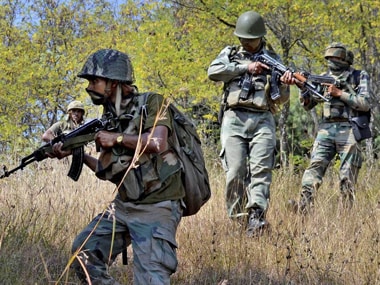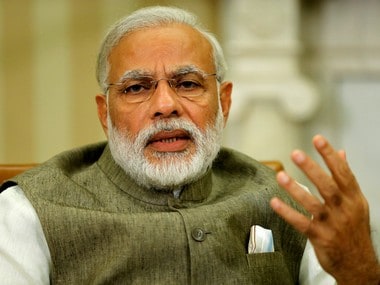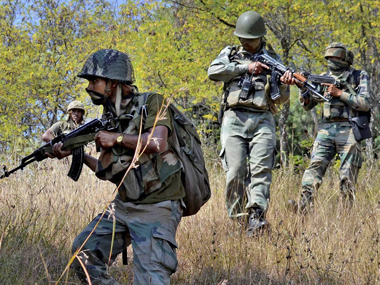My very old mother still takes a lively interest in the world around her. She pores over newspapers in the mornings, she avidly follows the news on television in the late evenings (early evenings being reserved strictly for serials), and she discusses the day’s events animatedly with people around her. Fortunately, her knowledge of English is limited; she concentrates wholly on Bengali fare. So she is fully au fait with what happened in Uri, shares the pain of the families of jawans killed there, feels incensed at Pakistan’s perfidies and no less incensed at the Indian Army’s unpreparedness, but is blissfully unaware of the feverish beating of war drums you hear on the English channels. Fortunately, because you need a strong stomach to withstand the sort of bile these channels are spewing. The Bengali channels are kinder on blood pressure and sugar levels. They report, discuss, analyse, pontificate on what happened in Uri or the United Nations, what the government should or should not do, what people want or do not want, even point out failings like the lack of fire-resistant tents and poor intelligence, but they stop short of trying to take the country to war. [caption id=“attachment_3015784” align=“alignleft” width=“380”]  Army personnel in Kashmir’s Uri sector. PTI[/caption] A friend in Bhubaneswar said Odiya media is not much different. Nor can I believe the picture will be dissimilar in a drowning Andhra Pradesh or a Cauvery-hit Karnataka gearing up to take on the Supreme Court or in Tamil Nadu, which surely has its eyes peeled on its immediate neighbour rather than on the more distant one. Most likely it is what we used to call the “cow belt” that is providing enough rage to compensate for the whole country and more. That is where the traditional vote bank of the BJP has always come from, and still constitute its core. They are the ones most miffed at Narendra Modi apparently reneging on raining fire on Pakistan and keeping our jawans in clover. Their channels, presumably the Hindi channels, could be giving the English ones a run for their money. It is of course nobody’s case that the rest of India is not patriotic enough or does not want Pakistan to be taught a suitable lesson for its treacherous ways. It’s a question of degree, the intensity and scale of their desire for retribution. It’s their determination to inveigle the government into declaring a full-fledged war. And in this, the English channels are fearsome. But who then is the English media representing or even addressing? Conventional wisdom has it that the media caters to its audience, readers, viewers, whatever, giving them what it wants, if not what it needs. Who do the English language news channels “own”? The ones who speak, think, write in English? Do they really represent the nation? Aren’t Macaulay’s children still a small fraction of our nation? Worse, aren’t most of them lily-livered Left liberals who find virtue in peace? How many full-blooded English-speaking patriots does that leave? As it is, the rising clout of the non-English speakers have had advertisers dubbing all “national” campaigns in the local languages, Hindi songs playing in discos and night clubs, cell phones brandishing an array of languages as a selling point. An Indian-accented English has not stood in the way of politicians like Mayawati and Mamata Banerjee and Nitish Kumar rising to the fore. Even their claim of being “national news channels” is quite specious. They are, they say, national because their viewership is not concentrated in one region but distributed across the country. But does a sprinkling of viewers in different parts of the country make them the voice of the nation? Can it, given that their numbers are miniscule compared to the regional language channels? There is, of course, anger in the country and anxiety over the inability to keep terrorism in check. A survey by Pew Research Center, American pollsters recently who have come to India, released earlier this week shows, “About six-in-ten Indians (62 percent) believe that overwhelming military force is the best way to defeat terrorism around the world and just 21 percent say relying too much on such force creates hatred that leads to more terrorism.” [caption id=“attachment_3010714” align=“alignright” width=“380”]  Prime Minister Narendra Modi. Reuters[/caption] More significantly, around half disapprove of the prime minister’s handling of relations with Pakistan, including more than half of BJP’s own supporters, the Pew Research report states. And this was before Uri happened. The survey was conducted over April and May this year — that is after Pathankot but before Uri. Still, the question remains: do people really want war? Are they fully aware of the consequences of such a step? What will they say when many more funeral pyres line the banks of Ganga, Yamuna, Cauvery? The English channels seem determined to replicate what the American media did for the Bush government and its Iraq war: accept the government line in toto, run with well-placed leaks as “investigative” stories, swallow official handouts wholesale, unquestioningly accept the spiel about Iraq’s cache of “weapons of mass destruction”, create a climate where raising any questions about the ruling dispensation’s objectives was seen as unpatriotic and anti-national. The tragedy is, those spewing venom and lusting for war in the studios will hardly be affected directly if the guns do boom across the border. Except for traditional military families that have been supplying the armed forces with their offspring for generations, and even they are changing; the upper classes have long forsaken the Army as a profession of choice. The 90s were replete with long newspaper reports lamenting the shortage in the Army of adequate officers as the “quality” of the new recruits left a lot to be desired, since they did not come from the koi hai types that used to rule with an iron hand. Now, we take pride in the deepening and broadening of the social base of the Army, reflecting the social composition of the country as a whole. It is these young men (and a handful of women) from disadvantaged families who will be in the line of fire, while we send our own children abroad. Applauding the “martyrdom” of these luckless soldiers from a safe distance demands nothing from us. But beware. The Pew survey, which reveals a resounding approval rate for prime minister Narendra Modi, also reveals a growing polarisation between Modi-bhakts and the rest. In short, BJP’s supporters may want war, but that is less than 33 percent of the voters going by the 2014 Lok Sabha elections, and voters are not the entire populace. There is nothing to show, as yet, the country as a whole does want war.
In short, BJP’s supporters may want war, but that is less than 33 percent of the voters going by the 2014 Lok Sabha elections, and voters are not the entire populace
Advertisement
End of Article


)

)
)
)
)
)
)
)
)



